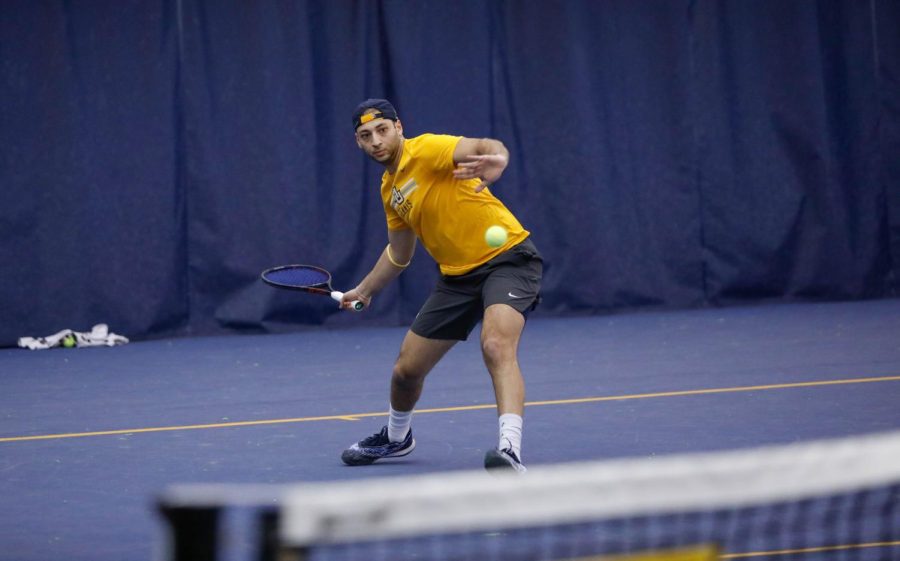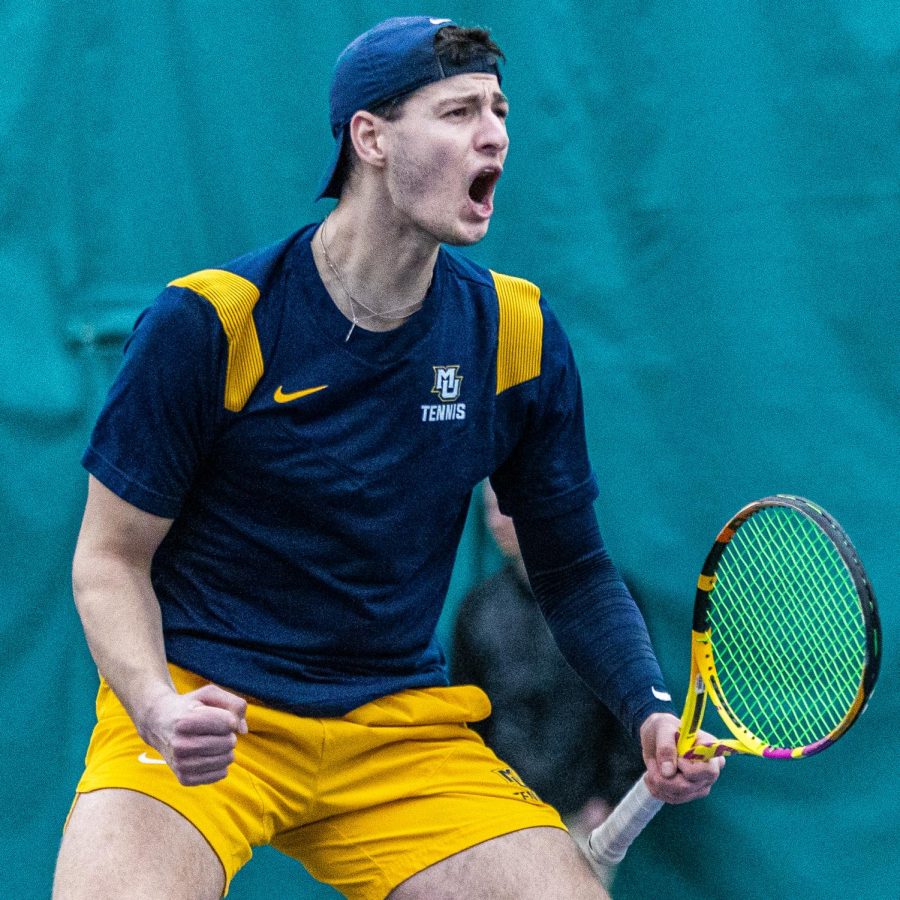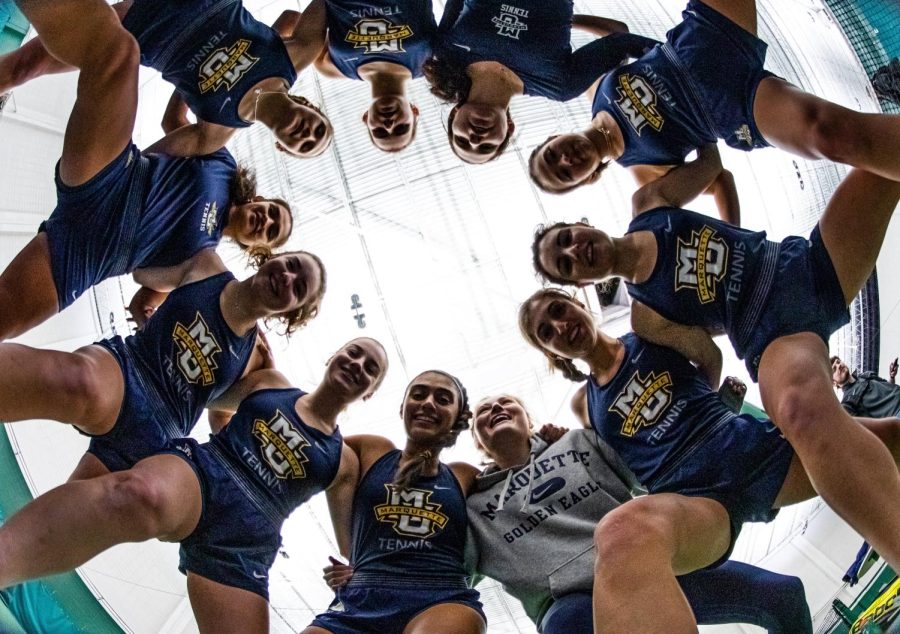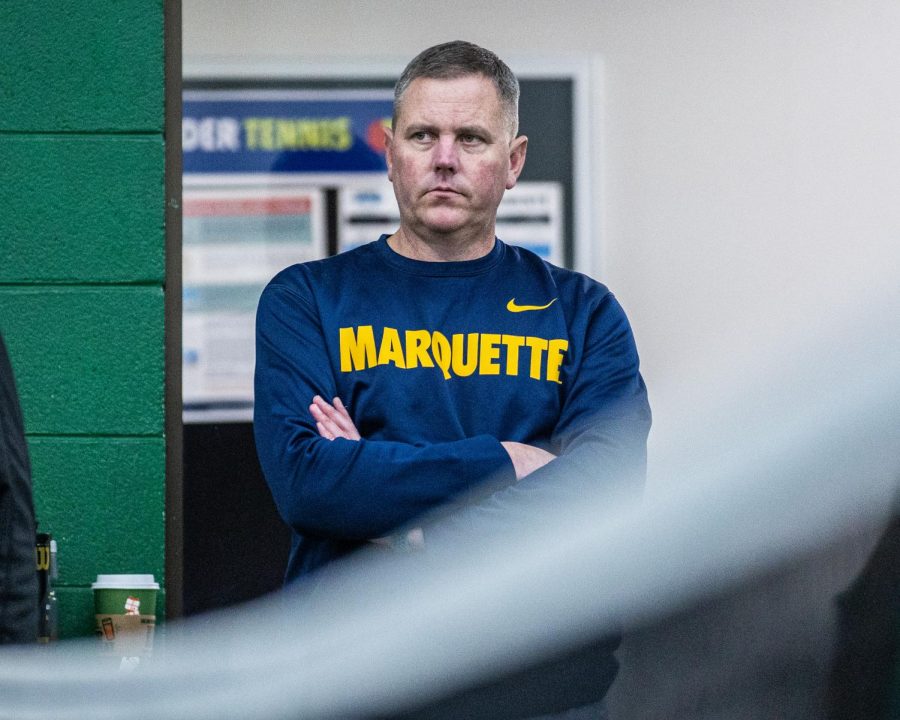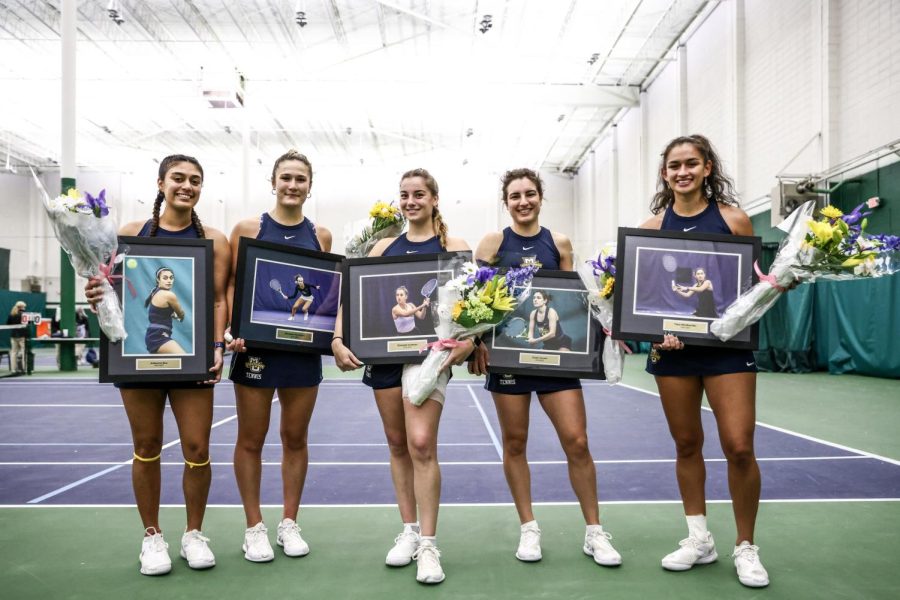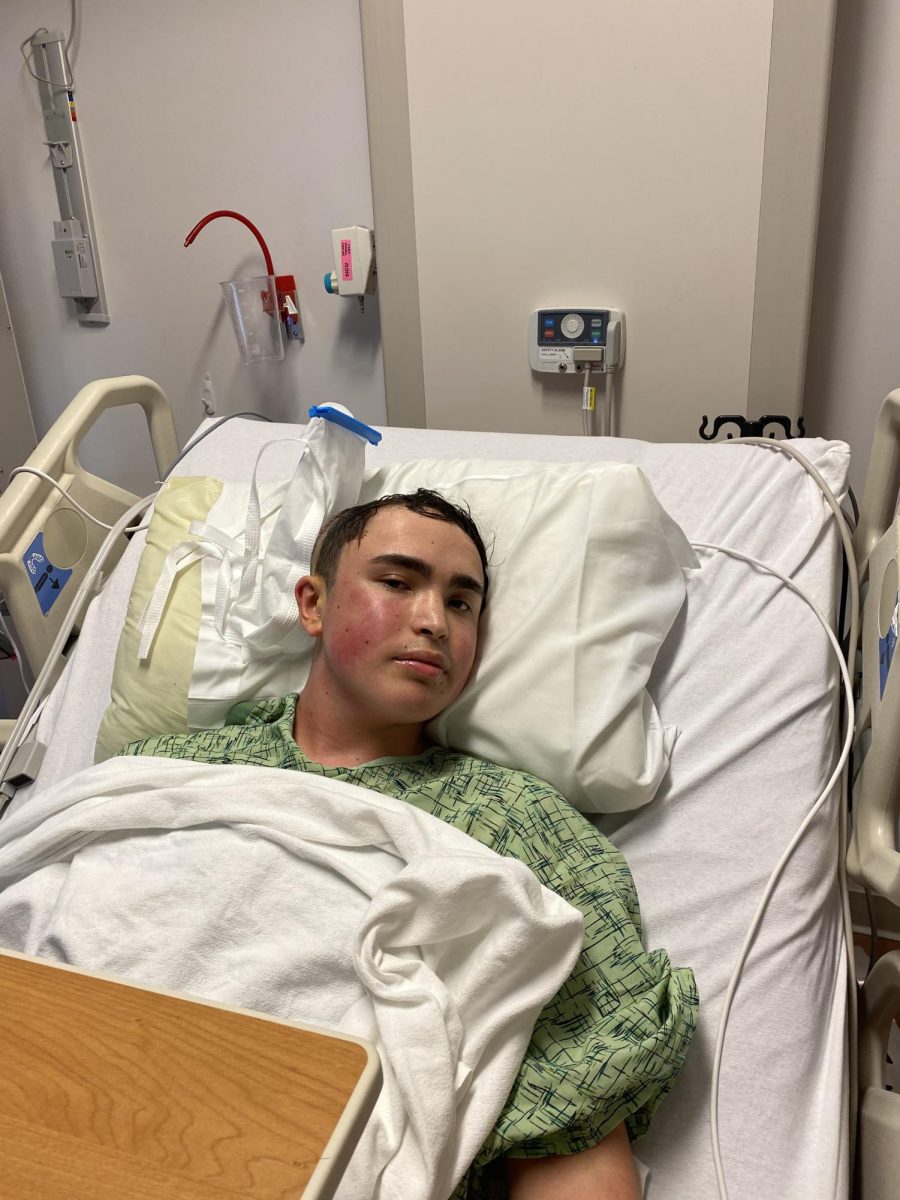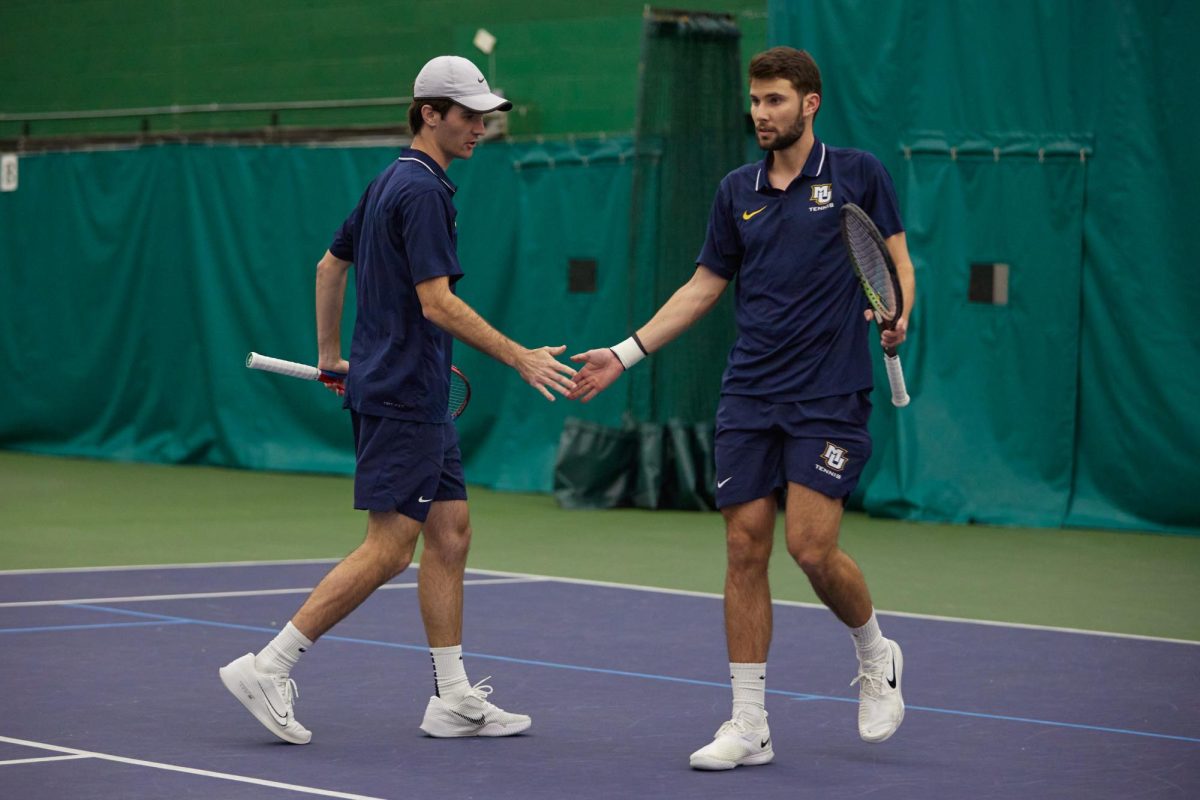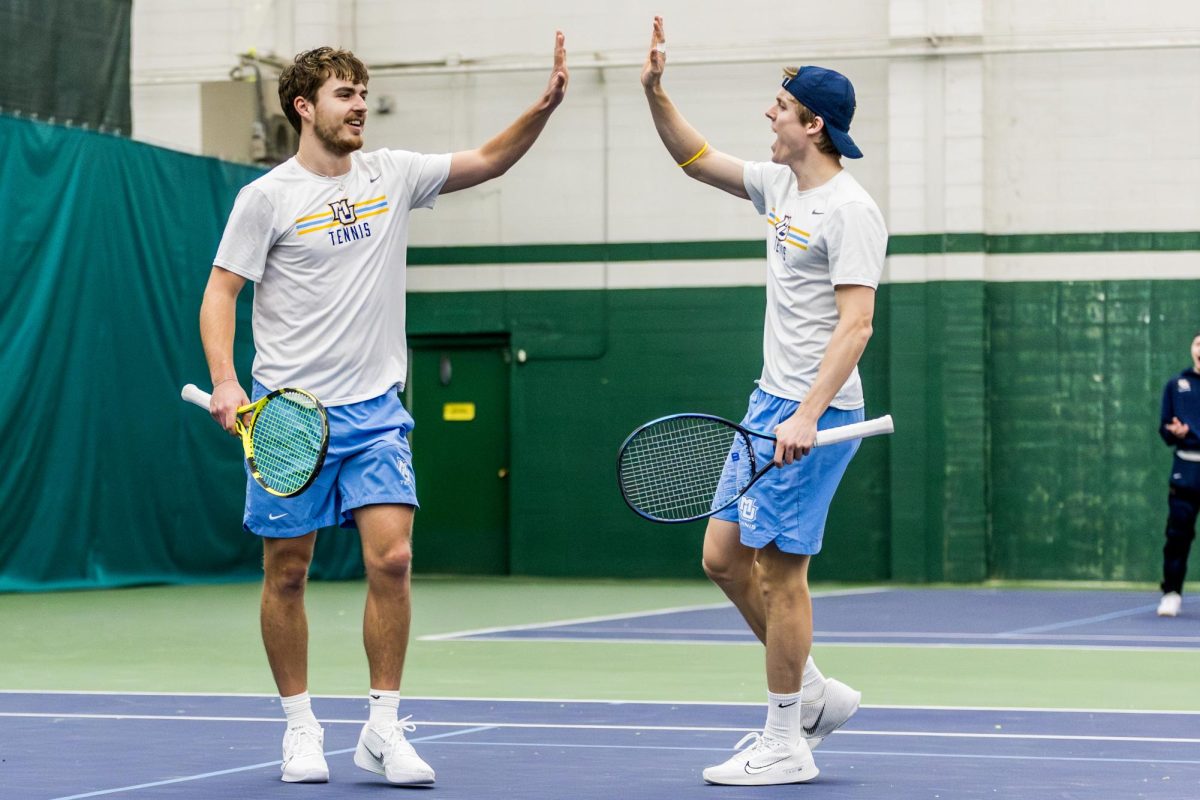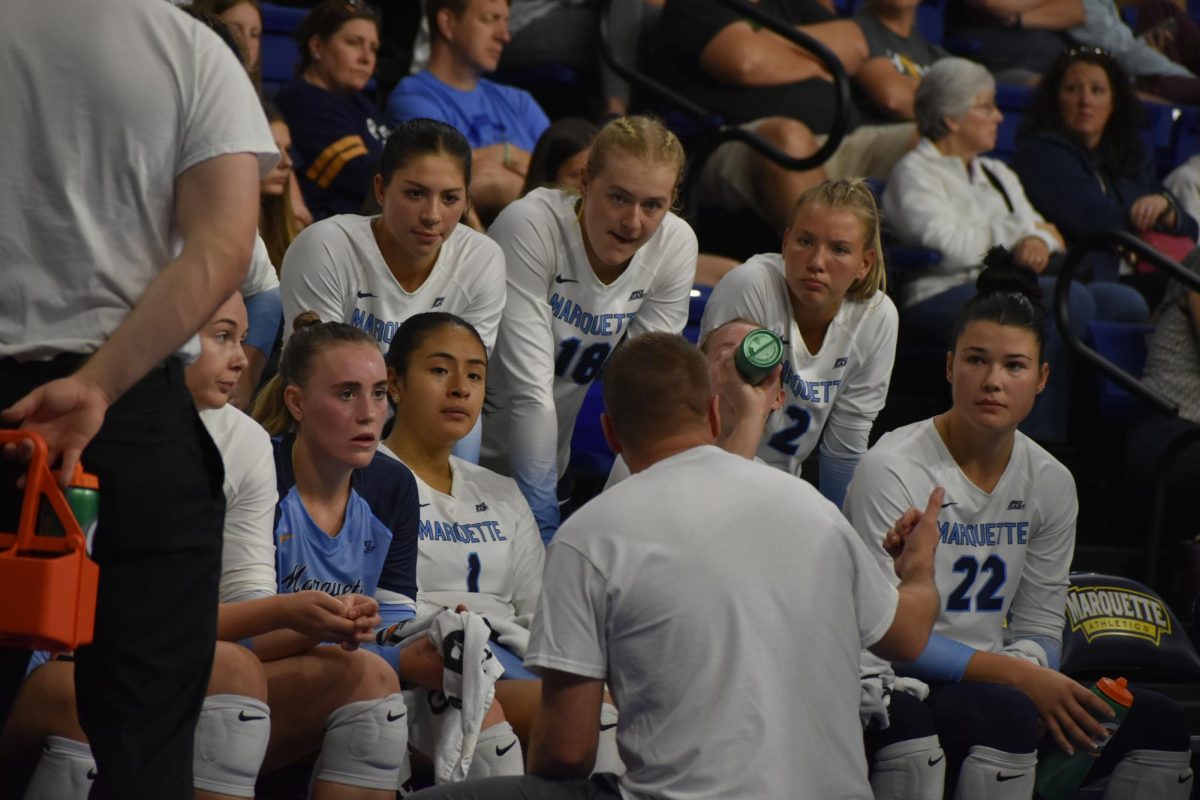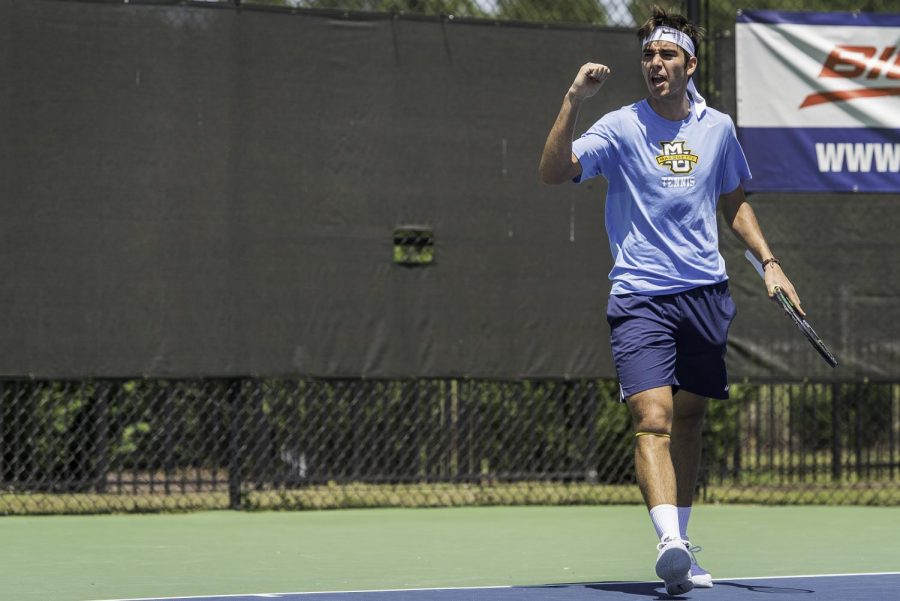A broken thumb in high school and wanting to be a hero for others is what has guided Marquette men’s tennis redshirt junior Shaddy Khalafallah on his journey to becoming a physician.
“I came into college wanting to pursue medicine to be able to obtain that role where I can essentially serve as a kind of hero toward somebody to save them from whatever they’re going through,” Khalafallah said.
When Khalafallah was in high school he broke his thumb and met a physician who helped him get back to playing tennis, and restore his faith.
“What invigorated me to kind of pursue that field is that I had like an injury before coming to college, and I met a physician who was able to kind of restore my faith, when I was in a dark place, because of my injury,” Khalafallah said.
In his time at Marquette, Khalafallah has spent time working on medicine, he’s played some tennis and he’s been knocked down through his strenuous schedule.
“It was like kind of balancing the two worlds of tennis and academics and rather than like transcending from it, I wanted to like bridge those two worlds together,” Khalafallah said. “I feel like I’ve been able to do that and definitely wasn’t easy.”
During Khalafallah’s first year at Marquette he started working on research as part of a retroactive study. The work and research Khalafallah did ultimately concluded with it being published in the JAAC Cardiovascular Interventions journal.
“Having that published and watching it get published on Public Medicine as well as many cardiac journals was very exciting,” Khalafallah said.
While working on the study, Khalafallah also got involved with Aurora Sinai which is located by Marquette’s campus and put in the hours, totaling over 100.
Initially he started working in the emergency room interacting with patients and the reality of what goes on in the emergency room. Then during the COVID-19 pandemic in January of 2021 Khalafallah went back and volunteered at the vaccine clinic.
“I was able to go back and volunteer in the vaccine clinic which was really nice because it was more peaceful than the ER,” Khalafallah said. “This was more calm, people were excited to get their vaccines.”
Khalafallah also used his platform as a student-athlete to help raise money for Aurora Sinai.
“I was also able to fundraise during the pandemic,” Khalafallah said. “I wanted to because there was a hospital shortage of supplies nationwide.”
In total, Khalafallah was able to raise almost $26,000 for Aurora Sinai to help with the lack of supplies at hospitals during the pandemic. Over the course of doing this, Khalafallah was still competing at a high level in tennis and pushed in the classroom knowing he’d be held to the same standards as his classmates.
“I knew that I would have to take tests with one-fourths the amount of time studying as my peers around me and being able to perform just as well as them,” Khalafallah said. “I knew that I’m going to have tiring practices sometimes that are going to affect my academics.”
When Khalafallah got to Marquette as a first year he said he knew it would be difficult to manage being both the student and the athlete in the student-athlete.
“I knew that I was going to be pushed left and right based off the fact that I’m going into Marquette with two colossal fields that people will struggle just managing one of them,” Khalafallah said.
Khalafallah said he’s had days where he went to class straight from practice without eating.
“I have had to get used to going to classes without eating food or going into classes sweaty and disgusting from practice,” Khalafallah said. “It’s definitely been really challenging. Some semesters I’ve had to go from practice straight into a chemistry lab or a physio or neuro lab for four hours.”
The hard work that Khalafallah has put in hasn’t gone unnoticed, as this past October he was named the Baird Blue & Gold Student-Athlete of the Month for October 2021. Marquette head coach Steve Rodecap said that he wasn’t surprised that Khalafallah won the award.
“I wasn’t shocked because those types of awards are given by and voted on by his peers and it’s not our team doing it,” Rodecap said. “It’s our academic advisors and people that he’s around and understand how serious and how dedicated he is to all facets of his athletic and academic experience.”
Khalafallah said that winning the award felt good but that it wouldn’t have been possible without those around him.
For Khalafallah, he and his siblings were the first people in his family to be born in the United States after his parents grew up in Egypt before immigrating to America. Khalafallah identifies as a Muslim Egyptian-American and said he’s proud of heritage.
“I am proud of what my heritage is and what my culture is,” Khalafallah said. “I’ve been very fortunate to have a family that has been very connected to our culture.”
Khalafallah said he has experienced discrimination and knows what it’s like to be judged for his culture.
“Being an Egyptian as well as a Muslim-American, I’ve been a victim to various types of discrimination because of that and I understand what it’s like to be judged for your culture,” Khalafallah said.
He said these experiences have opened his eyes to empathy, while adding to his inspiration to get into medicine.
“I feel that going through that, that’s what also inspires me to go into medicine as well as to show that empathy and understanding that I have an awareness that these things exist,” Khalafallah said. “I feel like being connected to my culture has opened my eyes to kind of like the empathy and sympathy that you have for another person.”
This article was written by Ben Schultz. He can be reached at [email protected] or on Twitter @benschultz52.

